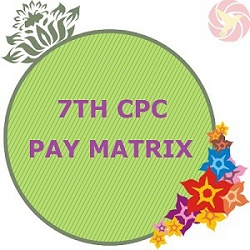Poll-bound states such as Punjab and Uttar Pradesh may find it difficult to bite the bullet when it comes to taking a call on announcing salary hike for government employees, on the lines of the 7th Central Pay Commission. A hike will hit the exchequer while dithering may cost during the ruling parties at the hustingsThe 7th Central Pay Commission (CPC) submitted its recommendations last November despite some state governments asking for a deferment on salary hike and allowances, anticipating financial challenges as and when their government staff seek pay parity.
The problem is more acute for poll-bound states such as Uttar Pradesh, Punjab, Goa and Uttarakhand, where the ruling parties would neither want to risk unpopularity by deferring a decision nor volunteer to strain their financial resources by accepting additional burden on the state exchequer on account of higher wages.
The convention all these years is that states follow suit once the Centre accepts the pay panel's proposals.
Some of the states had actually made a request to the Central government in November last year. "There are several states who have approached the Prime Minister's Office, Cabinet Secretary and Niti Aayog, seeking more time in implementation of the Seventh Pay Commission's report," the Indian Express had quoted a union finance ministry official as saying last December.
But as political parties get closer to the D-date, they may find it difficult to defer the decision that is intrinsically linked to electoral gains. The stakes are higher for the ruling BJP at the Centre as it is keen on capturing power in Uttar Pradesh and Uttarakhand and retain power in Punjab and Goa, so that it can shore up its numbers in the Rajya Sabha. The Opposition would be equally keen to deny the BJP political space in Uttar Pradesh and Uttarakhand, and defeat the party in the other two states.
Punjab
The ruling BJP-SAD combine in Punjab voiced concerns of how the pay panel proposals would upset its finances. "Punjab's finances are under stress and the burden of the Pay Commission's recommendations will certainly have an impact... Our officials have informally taken up the matter with the Centre," Punjab Finance Minister PS Dhindsa told the Indian Express last December itself.
The Prakash Singh Badal government in Punjab has piled up a huge debt, according to Congress leader and Lok Sabha MP Capt. Amrinder Singh, who accused the chief minister of enriching himself.
"While Punjab is on the brink of bankruptcy with over Rs. 1.5 lakh crores of debt, Badal's fortune is multiplying so much that he has built a fleet of aircraft, many seven star hotels besides a fleet of 500 buses," Singh was quoted as saying by PTI while addressing party workers in Ludhiana on July 8.
Uttar Pradesh
The implementation of the 7th CPC in the state is almost a foregone conclusion, according to a media report. The move would add about Rs. 24,000 crore to the state government's Rs. 1,00,000 crore annual wage bill, and the Samajwadi Party seems to have made up its mind to implement the pay panel's proposals, benefitting about 16 lakh employees and making about 5 lakh pensioners happy, according to a Business Standard report.
Even states that are not in poll mode have hinted at a favourable response, raising hopes for government staff. While the Tripura government hinted at "considering" the 7th Central Pay Commission's recommendations once the Centre takes a final call, the Karnataka government may have to take a decision after state employees went on a day's strike last month demanding pay parity.
"The difference (in pay) is very huge and there is no priority so it varies from 40% to 100%. We have issued a notice to the government and subsequently today all 6,40,00 employees are going for strike and absenting from their duties today," Narayan, the Organising Secretary of the Karnataka State Employees Association, toldNDTV on June 3.
Source: NDTV
Source: NDTV







